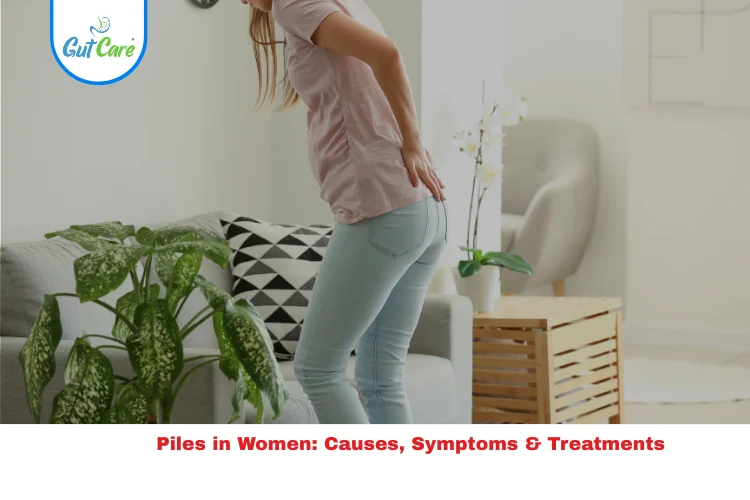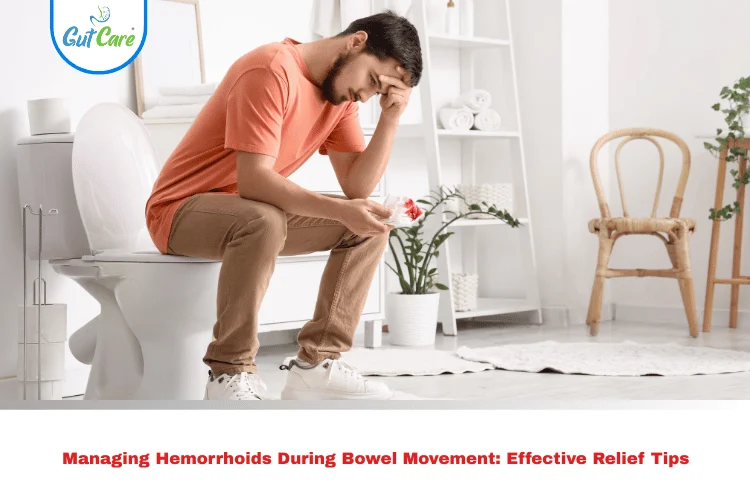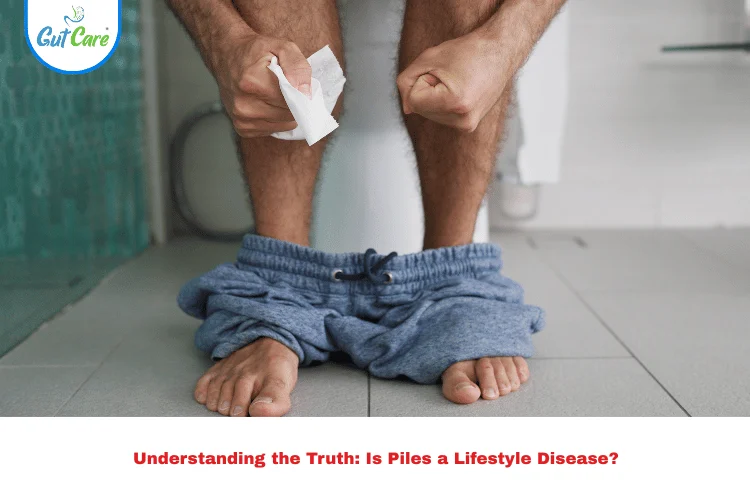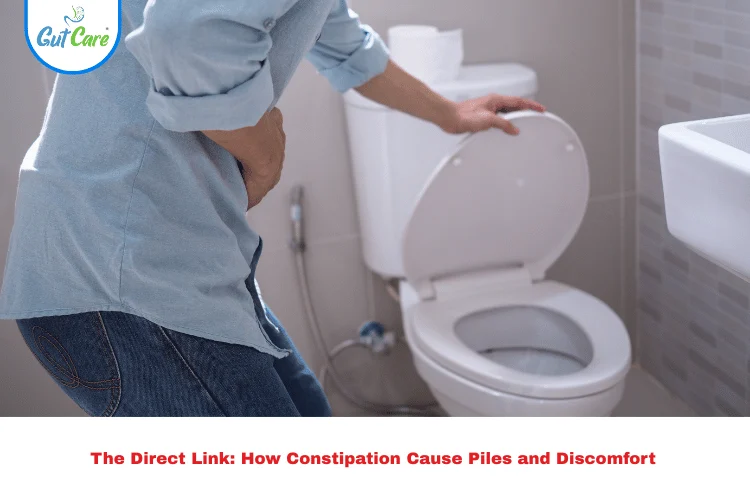Are you searching for specific answers about piles in women? Gut Care Clinics provides insight from a specialist as well as compassionate clinical treatment for female piles conditions. This complete guide addresses everything you will need to know about piles in both women and men, including early symptoms of piles in females through treatment options or female piles surgery.
What Are Piles?
Piles or hemorrhoids are swollen veins in the lower rectum or in the anus. Piles can be internal (inside the rectum) or external (under the skin around the anus). Piles can cause discomfort, itching, or bleeding.Piles impact women and men, but there can be unique challenges in women related to pregnancy, childbirth, and hormones. It is important to understand piles in women to allow for early diagnosis and prompt treatment.
Common Reasons for Piles in Female
Let’s explore the primary reason of piles in female:
- Pregnancy and Childbirth: Increased pressure on pelvic veins during pregnancy can lead to female piles. Labor and delivery may also strain rectal veins, worsening the condition.
- Hormonal Changes: Female hormones, especially during menstruation or menopause, can influence blood flow and digestive health, making women more prone to constipation and piles.
- Chronic Constipation: A sedentary lifestyle or low-fiber diet may result in straining during bowel movements, a key cause of piles.
- Obesity: Excess weight increases abdominal pressure, contributing to rectal vein swelling.
- Prolonged Sitting: Office jobs or sedentary routines raise the risk of developing piles in womens.
Understanding these underlying causes can help prevent and manage the condition effectively.
Early Symptoms of Piles in Female
Identifying early symptoms of piles in female can prevent complications and reduce the need for invasive treatments. Watch out for:
- Itching or irritation around the anus
- Pain or discomfort during bowel movements
- Bright red blood in the stool or on toilet paper
- Swelling or a lump near the anal region
- Mucus discharge post-defecation
If you notice these signs, it’s time to consult a piles doctor for a proper diagnosis and treatment plan.
How Piles Affect Women Differently
Women experience piles differently than men, often due to reproductive health factors. For example, hormonal fluctuations can lead to constipation, while childbirth can physically strain the rectum. Additionally, societal taboos often delay women from seeking medical help, worsening the condition.
At Gut Care Clinics, we emphasize empathetic care for female piles—addressing physical symptoms and the emotional discomfort many women experience.
Non-Surgical Treatments for Piles in Womens
Mild cases of piles in womens can often be managed with conservative treatments. These include:
1. Dietary Changes
- High-fiber foods (fruits, vegetables, whole grains)
- Adequate hydration
- Avoid processed foods
2. Over-the-Counter Creams and Ointments
- Provide temporary relief from itching and pain
- Contain ingredients like hydrocortisone and witch hazel
3. Warm Sitz Baths
- Soaking the anal area in warm water for 10–15 minutes can reduce inflammation and improve blood circulation.
4. Oral Medications
- Stool softeners to ease bowel movements
- Pain relievers if prescribed
These approaches are ideal for early-stage piles. However, persistent or severe cases may require surgical intervention.
Female Piles Surgery: What You Need to Know
When conservative treatments fail, female piles surgery might be necessary. Here are common surgical options:
1. Laser Hemorrhoidoplasty
- Minimally invasive
- Less pain and faster recovery
- Ideal for working professionals
2. Stapled Hemorrhoidopexy
- Reduces blood flow to hemorrhoidal tissue
- Minimal postoperative discomfort
3. Hemorrhoidectomy
- Traditional surgical removal of piles
- Best for large or persistent hemorrhoids
Our team at Gut Care Clinics specializes in safe, effective surgical solutions for piles in womens, tailored to each patient’s comfort and medical history.
Why You Should See a Piles Doctor
Ignoring piles can lead to serious issues like chronic bleeding, anemia, or even rectal prolapse. Consulting a qualified piles doctor ensures:
- Accurate diagnosis
- Personalized treatment
- Long-term relief
- Prevention of recurrence
If you’re based in Karnataka, finding the right piles doctor in Bangalore is easier with Gut Care Clinics. Our female-friendly environment and experienced specialists make us a top choice for women seeking confidential and effective piles treatment.
Preventive Tips for Managing Piles in Womens
Prevention is better than cure. Here are expert tips from Gut Care Clinics:
- Eat a fiber-rich diet daily
- Exercise regularly to avoid constipation
- Don’t delay bowel movements
- Stay hydrated (aim for 2–3 liters of water/day)
- Avoid straining during defecation
- Maintain healthy body weight
These lifestyle changes reduce the likelihood of developing piles in womens and also help in faster recovery post-treatment.
When to Seek Medical Attention
You should seek medical help if:
- Bleeding persists
- Pain increases over time
- Home remedies don’t help
- You experience a lump or prolapse
Delaying treatment may worsen the condition. Book a consultation with a trusted piles doctor in Bangalore at Gut Care Clinics today to receive expert guidance.
Conclusion
Piles in womens is a common but often overlooked condition. From hormonal shifts to childbirth, several unique factors make women more susceptible to piles. Recognizing the early symptoms of piles in females, understanding the reason for piles in females, and exploring the right treatment options—including female piles surgery—are key steps toward healing.
Gut Care Clinics offers compassionate, expert care for female piles. Don’t ignore the signs—consult a piles doctor today for lasting relief.
Need expert help?
Visit Gut Care Clinics – your trusted piles doctor in Bangalore.
We’re here to support every woman’s journey to better digestive and rectal health.
FAQs
1. What causes piles in females?
The main causes of piles in females include pregnancy, chronic constipation, hormonal changes and obesity. All of these factors create an excess of pressure on rectal veins, resulting in female piles of symptoms like pain, itching, and bleeding.
2. What are the beginning symptoms of piles in females?
Beginning symptoms of piles in female include anal itching, swelling, discomfort, blood spotting on toilet paper and pain after bowel movements. It is very important to consult a piles doctor to begin treatment early to prevent problems later.
3. Are piles surgery treatments in females safe and effective?
Yes, piles surgery treatments in females are typically safe and very effective. Choices like laser treatment and stapled hemorrhoidopexy typically provide very fast recovery and minimal pain. Be sure to consult a skilled piles doctor in Bangalore to discuss various options of personalized treatments.
4. How are piles in females different from males?
Piles in females can occur from being pregnant, menstrual cycle, and hormones which creates female piles symptoms and triggers that affect them in a more complicated way than males. This is why it is important you seek help from clinics that treat female piles.
5. Who is the best piles doctor in Bangalore for women?
Gut Care Clinics is one of the best options for expert treatment of piles in women. Their specialized team includes some of the leading piles doctors in Bangalore, providing personalized treatment for women, including non-surgical and surgical options.




